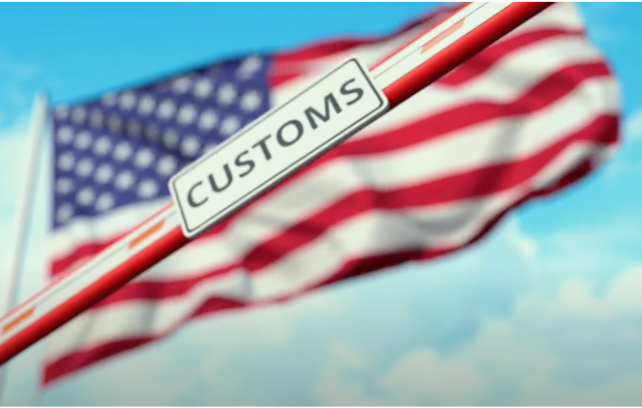News
Trump Closes ‘De Minimis’ Tariff Loophole That Allowed Temu and Shein To Rake In Millions

President Donald Trump officially closed the ‘de minimis’ tariff loophole that helped low-cost e-commerce giants like Temu and Shein dominate the U.S. market, and this policy shift is already shaking up the retail landscape. For decades, the de minimis provision allowed goods valued under $800 to enter the United States without incurring import duties or customs declarations. This century-old rule, once meant for modest souvenirs, became a powerful tool for Chinese online retailers. Companies such as Temu and Shein exploited this loophole to ship hundreds of thousands of duty-free packages daily. This enabled them to offer ultra-low prices and build expansive customer bases.
According to available data, Temu and Shein together handle nearly 600,000 de minimis shipments daily, and by avoiding tariffs and other associated costs, they have saved millions of dollars each year. This cost advantage has enabled them to undercut competitors and offer ultra-low prices compared to traditional retailers, who must pay significant import duties.
Closing the Tariff Loophole: Impact on Retail Earnings
With the tariff loophole now closed, the economic benefits that allowed Temu, Shein, and similar platforms to flourish will erode quickly. In 2022, traditional retailers like Gap and H&M paid roughly $700 million and $200 million, respectively, in import taxes, a cost that these low-cost competitors sidestepped entirely under the de minimis rule. By forcing Temu and Shein to disclose package contents and pay applicable tariffs, the U.S. government aims to level the playing field. As a result, these companies are likely to see an increase in operating costs that could force them to raise prices or adjust their business models.
Some industry experts predict that consumers may face higher prices on goods that once seemed outrageously cheap, while others warn that the overall volume of imports could decline. Already, Temu and Shein have been preparing for this change by shifting parts of their supply chain; for instance, they established warehouses near the U.S. border in Tijuana and Toronto. However, President Trump’s 25 percent tariffs on Canada and Mexico have effectively shut down this alternative route, leaving these companies with fewer options to bypass the new regulations.
Future Prospects for Chinese E-Commerce Giants
Although the closure of the tariff loophole marks a significant policy shift, Chinese e-commerce giants are unlikely to disappear overnight. They still possess a competitive edge when it comes to manufacturing efficiency and rapid production cycles. Nonetheless, the new tariffs will undoubtedly squeeze their profit margins. In the short term, these companies might attempt to pass on increased costs to consumers or find ways to optimize their operations further. Over the long term, their survival will depend on how effectively they can adapt to a more regulated trade environment.
Meanwhile, American retailers could benefit from this change if it restores fair competition in the market. As the U.S. government emphasizes fair trade practices over unfettered free trade, the recalibration of tariffs could also lead to improved scrutiny of product safety and labor standards—areas where Chinese companies have faced criticism for lax oversight and allegations of forced labor. Additionally, the closure of the tariff loophole may spur innovation among both domestic and foreign retailers, as they adjust to a market where compliance with trade regulations is non-negotiable.
Closing the Tariff Loophole Levels the Playing Field
The decision to close the tariff loophole is set to disrupt the business models of e-commerce giants like Temu and Shein, which have long thrived by leveraging this outdated provision. While the immediate impact will likely be seen in higher consumer prices and reduced shipment volumes, the long-term effects remain uncertain. Will these companies be forced to fundamentally reinvent their strategies, or will they find new ways to maintain their competitive advantage in a more equitable trading environment? Only time will tell as both consumers and retailers adjust to this new era of fairer trade practices.
What is your view on the closure of the tariff loophole? Tell us what you think!



